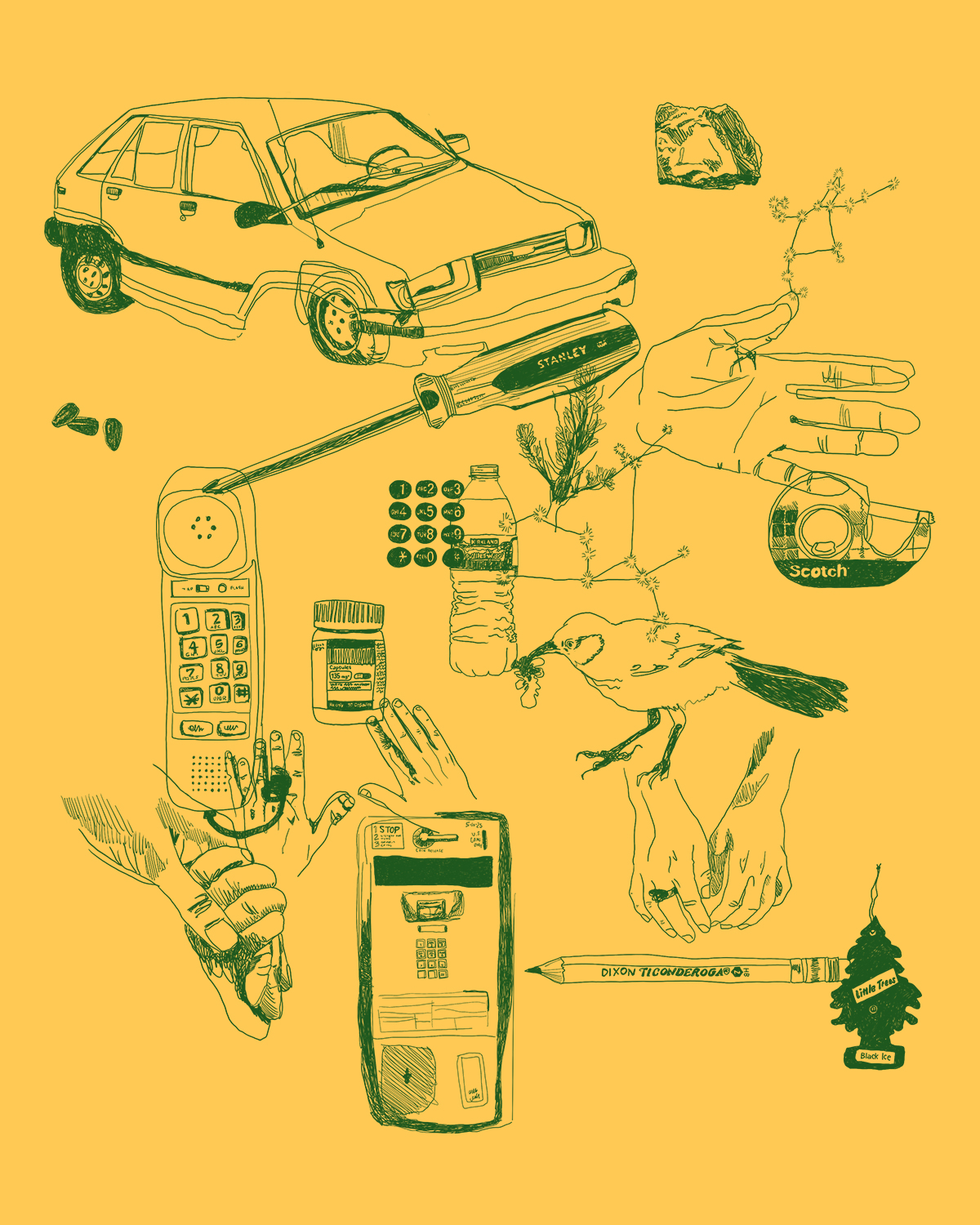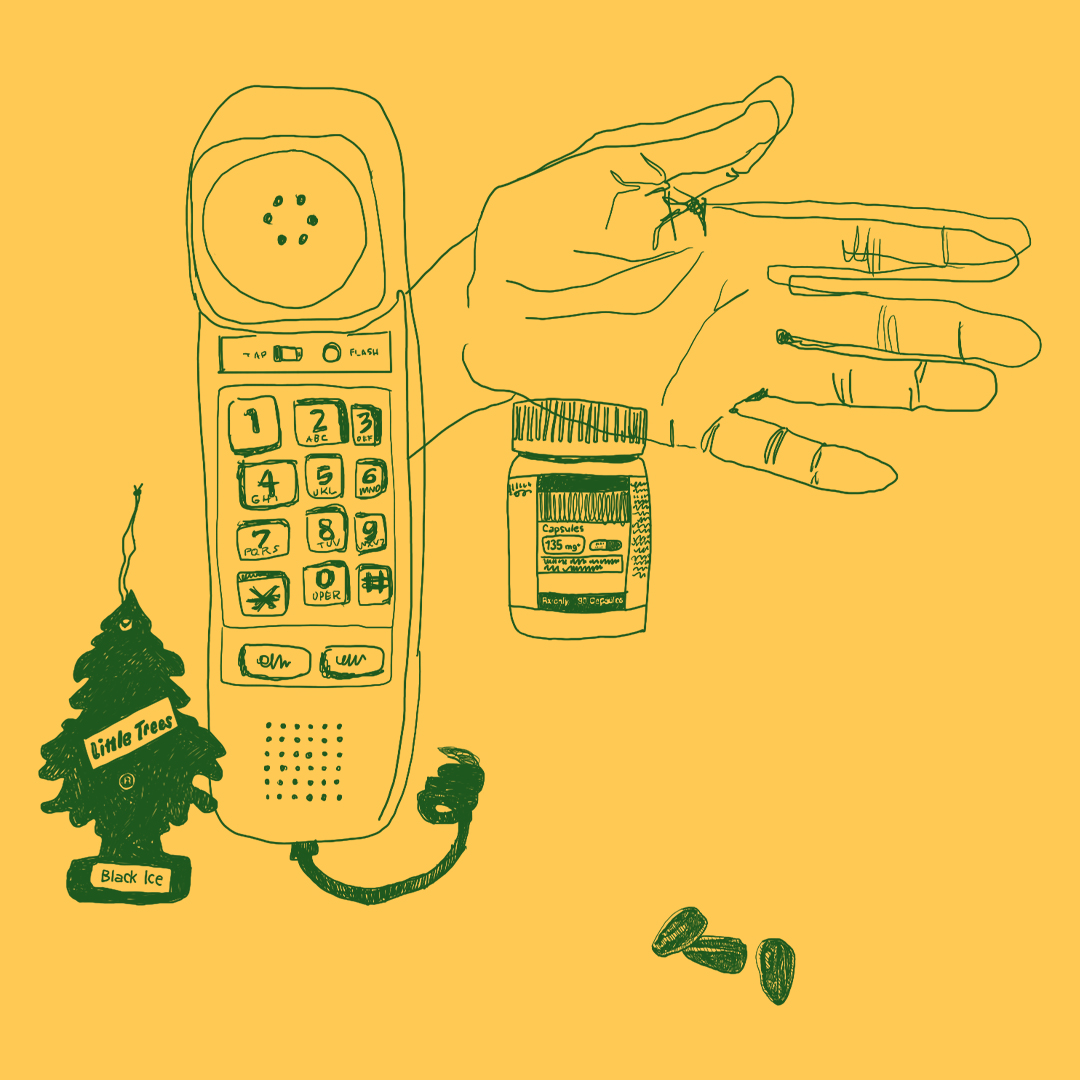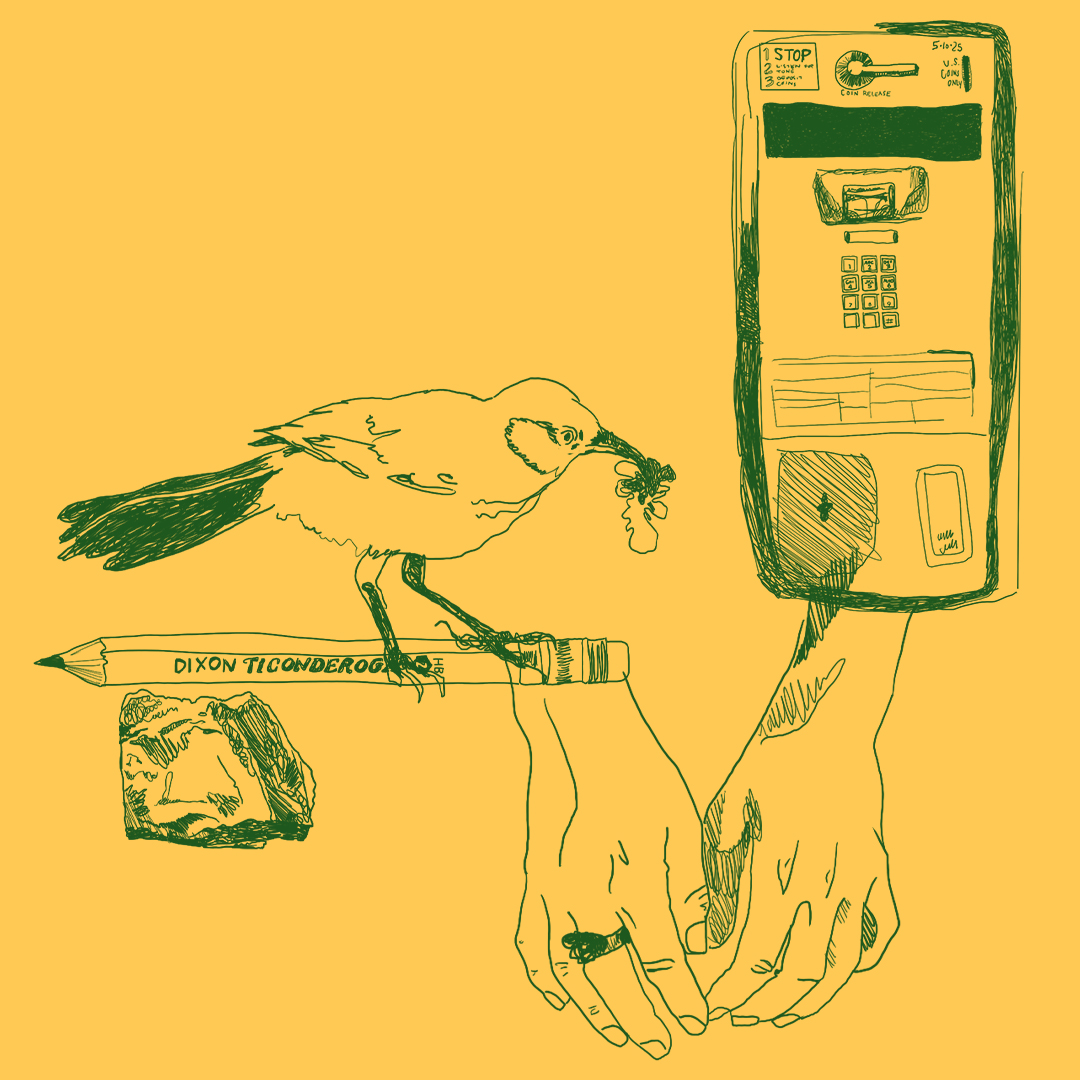Here’s Why You Should Try A THOUSAND WAYS
Have you tried A THOUSAND WAYS yet? The experience, created by 600 HIGHWAYMEN (Abigail Browde and Michael Silverstone) and presented by the Momentary, explores the line between strangeness and kinship, distance and proximity, and how the most intimate assembly can become profoundly radical.
A THOUSAND WAYS is an event in three parts, the first of which is happening now through April 3—Part One: A Phone Call. In Part One, you and another audience member (nameless strangers) hop on a phone call and follow a carefully crafted set of directives. Over the course of the journey, a portrait of each other emerges through fleeting moments of exposure and the simple sound of an unseen voice. The other two parts will happen later in the year, so please make sure you’re on our mailing list to receive announcements!
Even after reading this, you might be wondering what to expect. To help you understand the experience, three of our staff members have shared their personal experiences A THOUSAND WAYS (Part One): A Phone Call here:
Staff Member Experiences with Part One: A Phone Call

Taylor Jasper, curatorial assistant
Even in pre-pandemic days, before social distancing and digital alienation took hold of my life, I felt that many of my daily interactions had a sort of bumper-car quality to them. At work, at home, on the phone, via email: I bounced off of other people while we exchanged information, smiled or frowned, and moved on. I spent the majority of my time in public spaces wearing headphones, choosing to engage emotionally with music, or intellectually with a podcast, rather than verbally with those around me. I was, and continue to be, generally unfriendly with a slight penchant for crankiness. This, coupled with pandemic-induced digital fatigue, did not initially attract me to A THOUSAND WAYS (Part One): A Phone Call.
This work of participatory theater connects you with another caller, as a vaguely feminine, automated computer voice prompts each of you to describe your surroundings, identify something that’s yellow, hum your favorite song, and share a memory from your childhood. Because the conversation is mediated by a mechanical voice, it doesn’t have the flow of an organic dialogue, which makes it both alienating and absolving; while neither as exposing as therapy, nor as dehumanizing as a phone tree. Balancing our natural need for human connection with a respect for privacy, the script alternates semi-confessional prompts with metaphorical scenarios. I was profoundly impacted by the emotional journey I took. At a time when we are disconnected and isolated, the feeling of connection was profound.

Katie Robertson, engagement manager
I remember I was a little nervous just before I dialed in because I thought, “How much are we going to learn about each other? What will they ask?” I didn’t know what to expect from the experience, which was at once exhilarating and intimidating. Of course, I spent the first few minutes trying to predict what would happen—trying to “solve” the puzzle of what the next hour would hold, but I quickly became totally absorbed in the process of listening to the story I was actively co-creating with the voice on the other end of the line. It was a totally new and unexpected experience that allowed me to “check out” for a minute and use my imagination! What a gift and welcome break from Zooms and computer screens.
One thing I’m really grateful for in this experience is that it forced me to shift my perspective away from my physical space and become immersed in a creative process with another person, which truly did create a feeling of connection, even though they are still a stranger to me now. I also really liked that for this first phase, you can access the experience from wherever you’re calling, so since I was in a quiet place, it almost felt meditative. My curiosity for the next phase is definitely piqued!

Erica Harmon, copywriter
Speaking largely to the introverts among us, but also to others who experience social anxiety: don’t be afraid. This is not an event where you are expected to make small talk with someone you’ve never met. The automated voice (who stays with you and leads the entire experience) will ask you and your partner a selection of questions―about the room you’re in, what experiences you’ve had in your life, even what you were like as a child―that prompt you to think introspectively about yourself. You might also be prompted to repeat your partner’s words back to them, or count down with them from 10. At other moments during the experience, the automated voice tells stories and creates scenarios that feel like a guided meditation. In the end, we are all we take with us, as the automated voice reminds us. Part One: A Phone Call helps to remind us of that in a new, insightful way that is perfect in the current moment―yes, even for introverts.
A THOUSAND WAYS (Part One): A Phone Call is taking place now through April 3. Get your tickets here.



